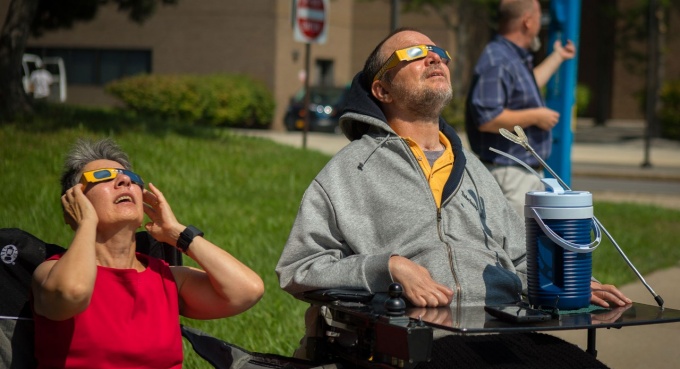About the Center

A brief history of the UB Center for Disability Studies
The UB Center for Disability Studies (CDS) was created through the cooperation of the UB College of Arts and Sciences and People Inc., a regional human service provider in Western New York. Eager to encourage both academic research and community education, People Inc. proposed the idea of a center that would bring together its resources and those of the university. An agreement creating the CDS as a three-year project was signed in October, 2009.
In its initial phase, the UB CDS hosted a visiting scholar over the course of three semesters (January 2010 – May 2011), Professor Michael Rembis. Prof. Rembis taught in the Department of History, while consulting with People Inc., UB, and the Center for Disability Studies on the development of a Masters degree in Disability Studies, and on the expansion of People Inc.’s exhibits and holdings at its Museum of Disability History. During this initial phase, Prof. Rembis worked closely with the Director of the UB CDS, Prof. David Gerber, also in the Department of History, to build the interdisciplinary Masters program in Disability Studies, which was composed of both new and existing curricula taught by faculty from throughout the Humanities and Social Sciences.
Prof. Rembis became Director of the CDS in 2012 and a tenured Associate Professor in the Department of History in 2015. Under his leadership, the CDS continues to work with faculty in the History Department and across campus to support a robust interdisciplinary MA in Disability Studies and an interdisciplinary Graduate Certificate in Disability Studies. In addition to its curricular offerings, the CDS supports diverse programming on campus and in the community throughout the year.
The need for Disability Studies at the University at Buffalo
Disability Studies and disability-related research programs are becoming prominent features at many of the most forward thinking colleges and universities. More than 50 such programs exist at institutions located across North America and the United Kingdom, and many more are being developed in countries throughout the world. The proliferation of these programs reflects a definite trend toward the incorporation of disabled people, as well as disability-related issues and research, into the larger society and the burgeoning academic research that explores human variation, cultural conceptions of “normal” bodies and minds, and exposes systems of power and oppression that are based on those conceptions. With the Americans with Disabilities Act (ADA), and medical and technological advances enabling disabled people to live longer, more fruitful lives, Disability Studies and disability-related research programs are certain to continue to grow and expand, as society seeks to incorporate millions of people with disabilities who seek to participate fully in American life.
The University at Buffalo is uniquely positioned to become a leader in Disability Studies. UB has a long, rich history of disability-related programs and research that have attracted an increasing number of scholars from around the world to Buffalo. UB faculty and staff have also shown a long-standing commitment to cross-disciplinary research and inquiry, especially in cultural, ethnic, gender, and area studies, and in strengthening the university’s ties with the larger community.
Philosophy and goals of the Center for Disability Studies
The Disability Studies program at UB focuses on providing students and interested community members with broad exposure to innovative methodological and theoretical approaches to studying disability primarily in the humanities, with extensive collaboration in the social sciences, education, law, and the health sciences. The Disability Studies curricula and research agenda is driven by an interdisciplinary focus that seeks to reconstruct and evaluate the broad and diverse experiences of marginalized populations. The Center for Disability Studies focuses on disability as a category of analysis and a lived embodiment and emphasizes the diverse experiences of disabled people in various times and locations.
The Center for Disability Studies at UB seeks to examine how addressing disability in its full complexity can promote the participation, self-determination, and equal citizenship of people with disabilities in society. The program remains open to any student, faculty, administrator, or community member who is committed to studying the complex nature of disability, with all of its implications, as well as more pragmatic measures that can be taken to minimize the negative personal and social consequences of disability. A particular strength of the program is its incorporation of a diverse array of faculty, students, and community members. The program explores issues that cut across impairment, clinical, social, cultural, ethical, legal, educational, and policy perspectives on disability.
The members of the Center for Disability Studies recognize the inherent tensions that exist between the therapeutic, medical, and social models of disability; we have used a critical engagement with these differences to develop a Disability Studies Program at UB that integrates a broad knowledge base and does not perpetuate long standing divisions.